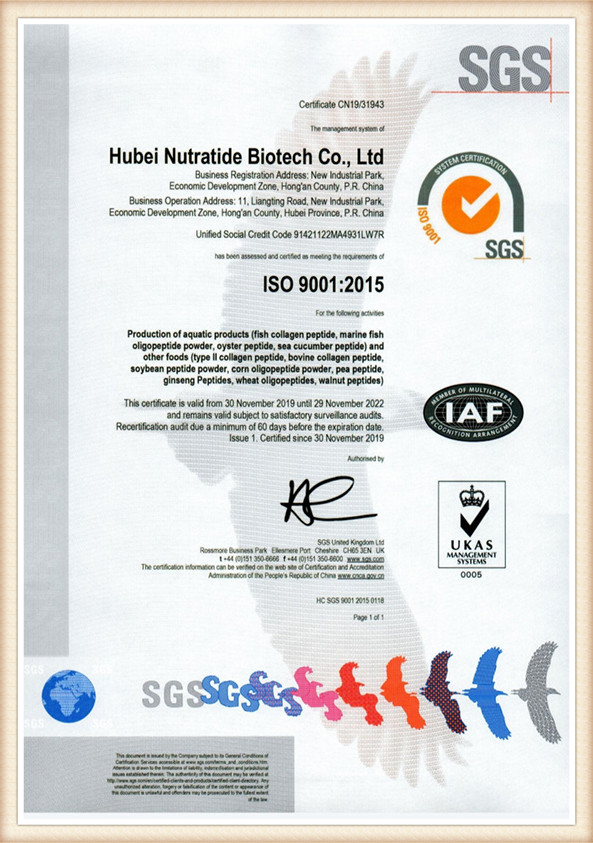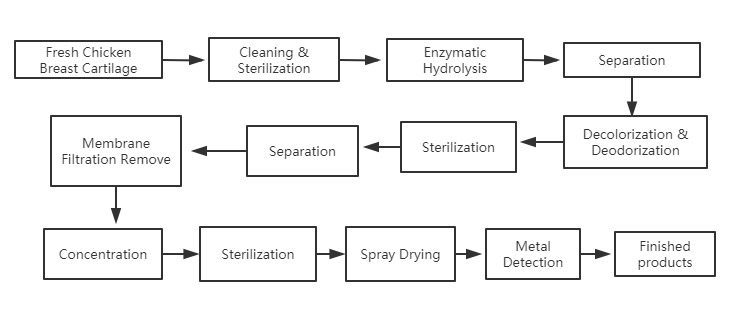Americans spent almost $300 million on collagen supplements in 2020, and the global market was expected to increase. Because collagen is the most abundant protein in our body and the key structural component of our skin, muscles, bones, blood vessels and connective tissue, it's easy to understand its appeal.
A typical Western diet may not contain collagen, and our bodies produce less collagen over time from the natural aging process or because of chronic inflammation, stress, nutritional deficiencies or smoking. While there is no blood test to detect collagen levels, the decline can become apparent with skin wrinkles because of loss of elasticity, stiffer joints, gut or digestive issues, and longer recovery time after injury. Gelatin For Sale

The market is oversaturated with collagen-based products, ranging from collagen peptides to bone broth protein, all manufactured in a variety of digestible mediums.
But lately, I've noticed a heightened increase across the social media for a supposed "alternative" to collagen: gelatin.
Are common multivitamins worth the money? New study explores the benefits, harms.
Alkaline water:Should you be splurging to make your body less acidic?
Nutritionally, gelatin is equivalent to collagen. One tablespoon of gelatin contains about 6 grams of protein. Gelatin is not a complete protein, however, and should not be considered a high source of protein.
Gelatin and collagen both share the same 19 amino acids. Structurally, however, they are quite different. Gelatin is basically a denatured and hydrolyzed form of collagen. This means that when you subject the triple helix structure of collagen to extreme heat and then water, you end up with the shorter amino acid chains found in gelatin and in bone broth protein. You'll often see "collagen peptides" products as well – this just means that the collagen is further hydrolyzed by enzymes used in the manufacturing process.
The digestibility of collagen and gelatin is essentially the same – they're both highly digestible. Digestibility is measured as the percentage of amino acids in the protein ingested that is absorbed (mostly in the small intestine) relative to how much is excreted.
Apple cider vinegar:People swear by it for weight loss. Does it actually work?
Biotin basics:Everyone is talking about these supplements. Here's what you need to know.
Most of us have experienced gelatin as Jell-O (which has been around since 1890) either as children or while in the hospital. When you add heat to gelatin, the energy of the high temperature breaks apart the weak bonds holding the gelatin together. When the mixture is refrigerated, the chains reform but imperfectly, which gives Jell-O its unique semi-solid structure.
Gelatin is also found in marshmallows, candy corn, gummy bears and jelly beans. It's also commonly used in the preparation of several types of Chinese soup dumplings.
The quality of research supporting collagen supplementation is a mixed bag. The studies tend to focus on benefits such as improving skin elasticity and hydration and reduction in joint pain and improved joint functionality. Though some of the studies do include a robust randomized-control setup, I am concerned over potential conflict of interests because the studies tend to be funded by industries that stand to benefit from the research.
I did not find any notable research that looked at the benefits of gelatin directly, but because collagen and gelatin are essentially the same protein, we can safely ascribe the identified benefits of collagen to gelatin.
Of important note though: Gelatin is often mentioned in multiple social media forums as preferred over collagen for those suffering from "leaky gut," which is a hypothesis for a number of diseases ranging from fibromyalgia to irritable bowel syndrome to celiac disease. Purveyors of this hypothesis maintain that a "leaky" gut wall that does not have enough collagen or gelatin "glue" will be more permeable to toxins and bacteria.
But the lining of our gastrointestinal tract (GI tract) is actually meant to be semi-permeable to allow for the absorption of water and other nutrients we consume. We don't need to "plug" all the holes with gelatin, for example. But chronic inflammation and some autoimmune diseases can cause erosions in the GI tract wall, leading to a hyperpermeable membrane. Essentially, "leaky gut" is a symptom that plagues those who suffer from these chronic debilitating diseases rather than a cause of them.
Got an injury? Should you reach for an ice pack or heating pad?
More:Why Epsom salt should be a staple in your home medicine cabinet
Truly, the main difference between collagen and gelatin is a practical one: What's the easiest way to consume it? I've found that gelatin powder will, well ... gel when added to either warm or cold beverages, and this flavorless thick substance is difficult to drink.
The best way to take advantage of the benefits of collagen, or gelatin for that matter, is to drink a cup of bone broth daily or add hydrolyzed collagen (collagen peptides) to a warm or cold beverage. Collagen peptides are dissolvable in warm and cold beverages and will not gel.
But if you are set on gelatin, I recommend homemade sugar-free jello cups, gelatin squares or healthy gummy snacks. While Jell-O does come in sugar-free packets, I'd avoid it because of the artificial sweeteners, flavorings and coloring agents.

Gelatin Protein Michael Daignault, M.D., is a board-certified ER doctor in Los Angeles. He studied Global Health at Georgetown University and has a medical degree from Ben-Gurion University. He completed his residency training in emergency medicine at Lincoln Medical Center in the South Bronx. He is also a former United States Peace Corps Volunteer. Find him on Instagram @dr.daignault.